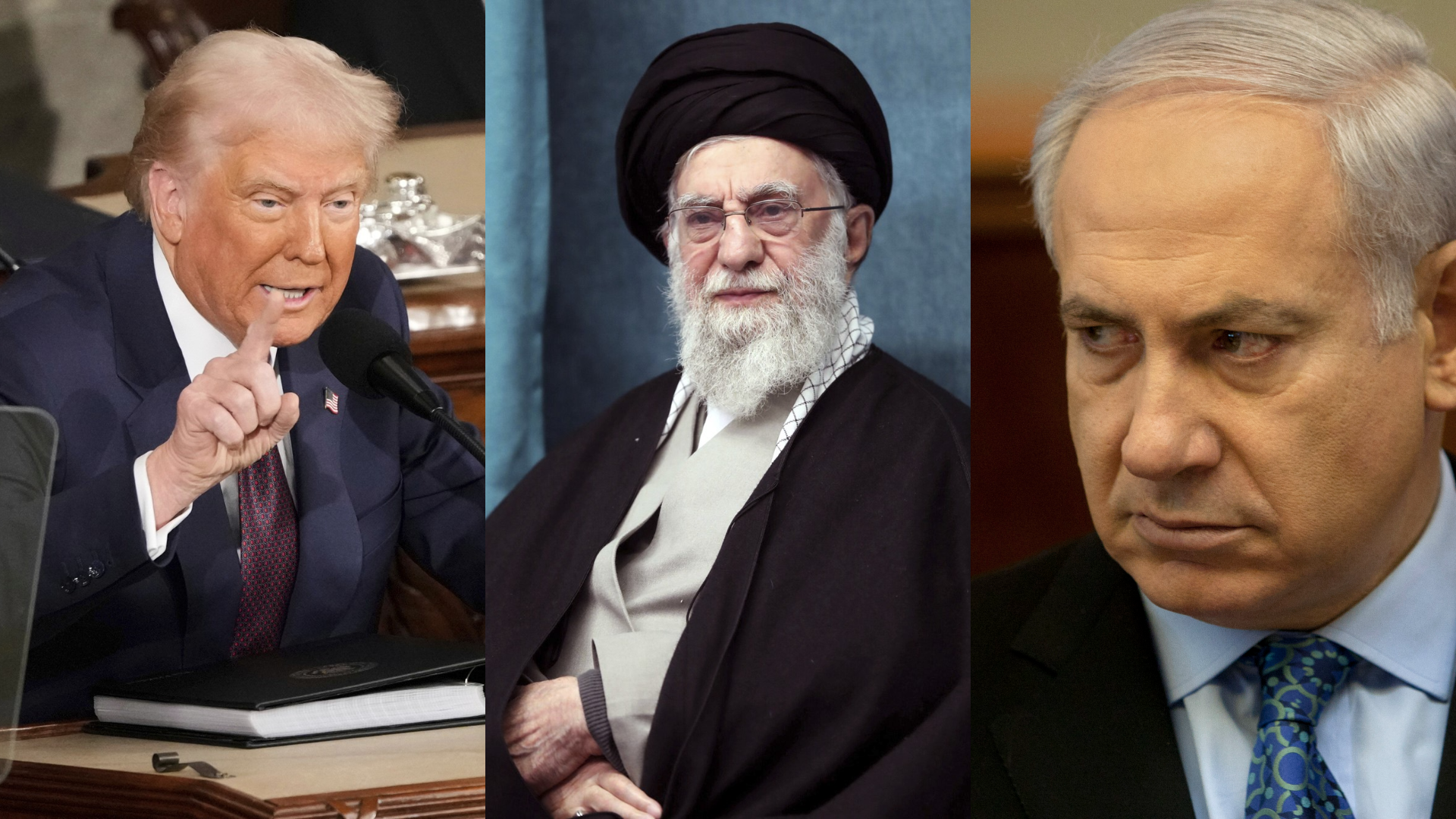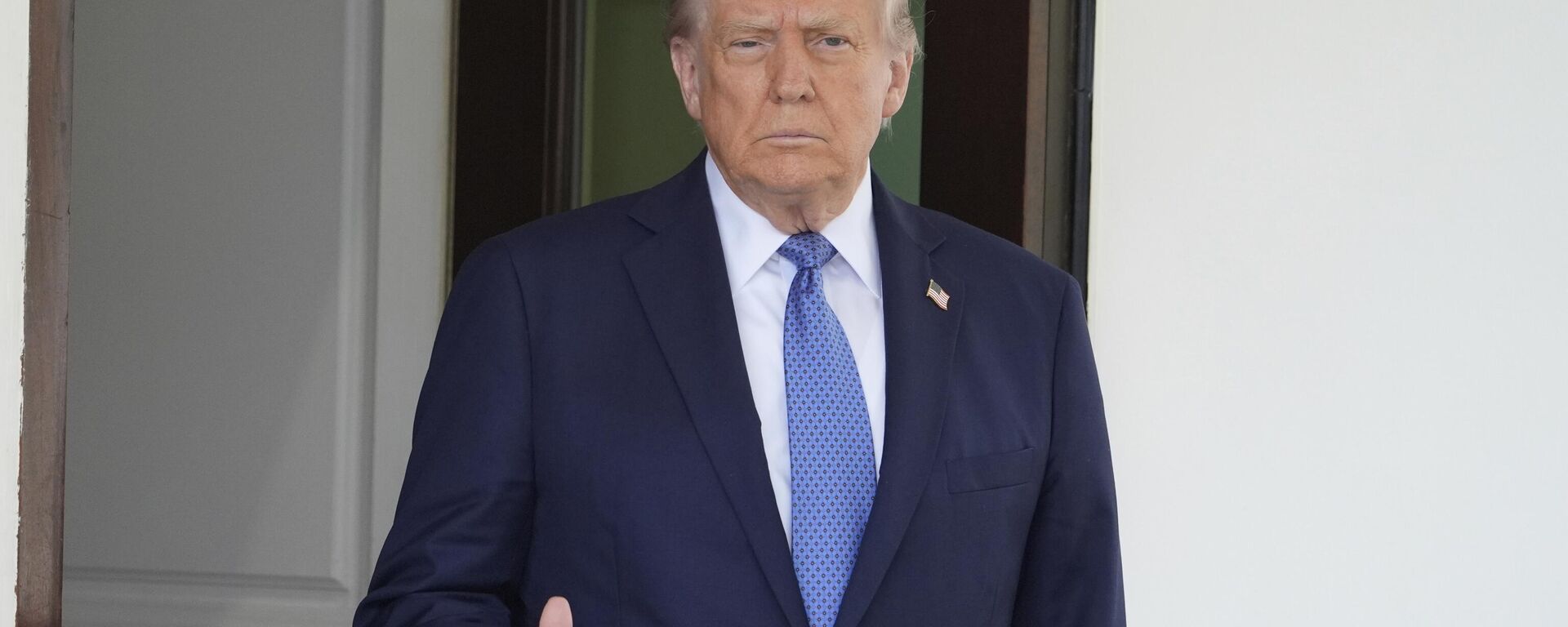https://sputniknews.in/20250624/will-us-strikes-fuel-irans-nuke-programme-9344186.html
Will US Strikes Fuel Iran’s Nuke Programme?
Will US Strikes Fuel Iran’s Nuke Programme?
Sputnik India
The US struck three Iranian nuclear sites—Natanz, Isfahan, and Fordow—deploying bunker-buster bombs to damage the country’s fortified underground facility at... 24.06.2025, Sputnik India
2025-06-24T16:16+0530
2025-06-24T16:16+0530
2025-06-24T16:17+0530
sputnik opinion
donald trump
dmitry medvedev
iran
us
india
islamic revolutionary guard corps (irgc)
pentagon
israel
tehran
https://cdn1.img.sputniknews.in/img/07e9/06/13/9321284_0:0:1920:1080_1920x0_80_0_0_d15e524edf8331c19856e2b555af1848.png
On June 21, 2025, the United States executed Operation Midnight Hammer, a massive airstrike campaign targeting Iran’s nuclear facilities at Fordow, Natanz, and Isfahan.Costing an estimated $150–200 million, the operation's mixed success, combined with political pressures such as Representative Thomas Massie's allegations of American Israel Public Affairs Committee's influence on President Donald Trump, raised critical questions about its strategic impact and motivations, according to media reports.The operation involved seven B-2 Spirit stealth bombers deploying 14 GBU-57 Massive Ordnance Penetrator (MOP) bombs, each costing $3.5 million, and over 30 Tomahawk cruise missiles, priced at $2 million each, launched from US Navy submarines.The International Atomic Energy Agency (IAEA) Director General, Rafael Grossi, noted visible craters but could not verify underground losses. Natanz, Iran's primary enrichment site, saw its above-ground infrastructure obliterated, with underground halls crippled by power outages, likely destroying thousands of IR-6 and IR-8 advanced centrifuges.Isfahan, a uranium conversion facility, sustained "extensive damage" to tunnel entrances and nuclear-related structures.Crucially, no radiation leaks were detected, and Iran's preemptive transfer of 400 kg of 60% enriched uranium—sufficient to produce three to four nuclear weapons if further enriched to 90%—indicates strategic foresight in preserving critical assets, reckons Dr. Shubhda Chaudhary, Founder, Middle East Insights Platform.Iran's Islamic Revolutionary Guard Corps (IRGC) has since bolstered air defences, signaling defiance. However, US intelligence, including a March 2024 assessment by Director of National Intelligence Tulsi Gabbard, indicates Supreme Leader Ayatollah Ali Khamenei has not authorised a weapons programme, she added.Iran faces a strategic bind: pursuing a bomb risks severe international sanctions and further military action, while restraint could preserve diplomatic avenues, though trust in negotiations waned after the collapse of Vienna talks in early 2025, which Secretary of State Marco Rubio revealed were a US pretext for military planning, the strategic affairs pundit noted.The decision to strike, per Rubio, stemmed from Trump's March 7, 2025, ultimatum to Khamenei, demanding Iran halt enrichment or face consequences. This shift from Trump's earlier diplomatic overtures, including Turkish-brokered talks in Istanbul, was driven by Israeli intelligence warning of Iran's nuclear threshold and persistent advocacy from Israel, Chaudhary pointed out.Chaudhary suggested that while the strikes may have temporarily delayed Iran’s nuclear programme, they failed to significantly undermine its progress, as Iran’s preserved uranium stockpile and resilient infrastructure indicate it still retains breakout potential. The operation's high cost and incomplete success, coupled with domestic political friction and AIPAC's alleged sway, underscore the complexity of US policy, she added.Iran's next steps—whether covert escalation or diplomatic restraint—will shape Middle Eastern stability, with global powers like Russia and China closely watching, she explained.Meanwhile, Dr. Arshad, a research fellow at the Indian Council of World Affairs (ICWA), believes that Iran can only hide its operations of nuclear programme completely if it goes the North Korea way, cutting off completely from the world and following a clandestine nuclear enrichment programme.One should remember that Iran has consistently advocated for a peaceful nuclear programme to serve its strategic goals and civilian purposes. It has also rejected US demands to halt its enrichment programme, considering it vital and non-negotiable for Iran’s sovereignty and nuclear capability, he highlighted.The recent direct attack on Iran's Fordow main nuclear site also raised questions on the US tactics, whether it will be able to prevent Iran from enriching nuclear power, as Iran threatened to take actions against US bases and prevent the transshipments of oil through the Strait of Hormuz, Dr. Arshad concluded.
https://sputniknews.in/20250623/trump-suggests-regime-change-in-iran-if-it-cant-be-great-again-9339220.html
iran
us
india
israel
tehran
strait of hormuz
Sputnik India
feedback.hindi@sputniknews.com
+74956456601
MIA „Rossiya Segodnya“
2025
Pawan Atri
https://cdn1.img.sputniknews.in/img/07e6/0c/13/139630_147:0:831:684_100x100_80_0_0_8fa2b25903e7787fe6a2698552c167df.png
Pawan Atri
https://cdn1.img.sputniknews.in/img/07e6/0c/13/139630_147:0:831:684_100x100_80_0_0_8fa2b25903e7787fe6a2698552c167df.png
News
en_IN
Sputnik India
feedback.hindi@sputniknews.com
+74956456601
MIA „Rossiya Segodnya“
Sputnik India
feedback.hindi@sputniknews.com
+74956456601
MIA „Rossiya Segodnya“
Pawan Atri
https://cdn1.img.sputniknews.in/img/07e6/0c/13/139630_147:0:831:684_100x100_80_0_0_8fa2b25903e7787fe6a2698552c167df.png
donald trump, dmitry medvedev, iran, us, india, islamic revolutionary guard corps (irgc), pentagon, israel, tehran, strait of hormuz, benjamin netanyahu
donald trump, dmitry medvedev, iran, us, india, islamic revolutionary guard corps (irgc), pentagon, israel, tehran, strait of hormuz, benjamin netanyahu
Will US Strikes Fuel Iran’s Nuke Programme?
16:16 24.06.2025 (Updated: 16:17 24.06.2025) The US struck three Iranian nuclear sites—Natanz, Isfahan, and Fordow—deploying bunker-buster bombs to damage the country’s fortified underground facility at Fordow, media reports say.
On June 21, 2025, the United States executed Operation Midnight Hammer, a massive airstrike campaign targeting Iran’s nuclear facilities at Fordow, Natanz, and Isfahan.
Costing an estimated $150–200 million, the operation's mixed success, combined with political pressures such as Representative Thomas Massie's allegations of American Israel Public Affairs Committee's influence on President Donald Trump,
raised critical questions about its strategic impact and motivations, according to media reports.
The operation involved seven B-2 Spirit stealth bombers deploying 14 GBU-57 Massive Ordnance Penetrator (MOP) bombs, each costing $3.5 million, and over 30 Tomahawk cruise missiles, priced at $2 million each, launched from US Navy submarines.
Over 125 aircraft participated, making it the largest B-2 strike in US history. The Pentagon aimed to neutralise Iran's uranium enrichment capabilities, but damage assessments reveal limitations. At Fordow, a fortified facility buried 30 meters underground near Qom, satellite imagery confirmed six craters, yet Iranian official Mehdi Mohammadi stated no "irreversible damage" occurred, suggesting prior evacuation.
The International Atomic Energy Agency (IAEA) Director General, Rafael Grossi, noted visible craters but could not verify underground losses. Natanz, Iran's primary enrichment site, saw its above-ground infrastructure obliterated, with underground halls crippled by power outages, likely destroying thousands of IR-6 and IR-8 advanced centrifuges.
Isfahan, a uranium conversion facility, sustained "extensive damage" to tunnel entrances and
nuclear-related structures.
Crucially, no radiation leaks were detected, and Iran's preemptive transfer of 400 kg of 60% enriched uranium—sufficient to produce three to four nuclear weapons if further enriched to 90%—indicates strategic foresight in preserving critical assets, reckons Dr. Shubhda Chaudhary, Founder, Middle East Insights Platform.
"Assertion that Iran may now pursue a covert nuclear weapons program is plausible but not certain. Iran's stockpile, per IAEA February 2025 reports, could yield bomb-grade material in weeks, and its history of secrecy—Fordow was undisclosed until 2009—suggests the capacity to hide activities. The strikes' partial success may incentivise weaponisation as a deterrent," Chaudhary told Sputnik India.
Iran's Islamic Revolutionary Guard Corps (IRGC) has since bolstered air defences, signaling defiance. However, US intelligence, including a March 2024 assessment by Director of National Intelligence Tulsi Gabbard, indicates Supreme Leader Ayatollah Ali Khamenei has not authorised a weapons programme, she added.
Iran faces a strategic bind: pursuing a bomb risks severe international sanctions and further military action, while restraint could preserve diplomatic avenues, though trust in negotiations waned after the collapse of Vienna talks in early 2025, which
Secretary of State Marco Rubio revealed were a US
pretext for military planning, the strategic affairs pundit noted.
The decision to strike, per Rubio, stemmed from Trump's March 7, 2025, ultimatum to Khamenei, demanding Iran halt enrichment or face consequences. This shift from Trump's earlier diplomatic overtures, including Turkish-brokered talks in Istanbul, was driven by Israeli intelligence warning of Iran's nuclear threshold and persistent advocacy from Israel, Chaudhary pointed out.
"Massie, a Kentucky Republican, criticised the strikes as unconstitutional, lacking congressional approval, and alleged that the American Israel Public Affairs Committee (AIPAC) heavily influenced Trump, overriding his 'America First' base's anti-interventionist stance. Make America Great Again (MAGA) figures like Steve Bannon echo this unease, highlighting tensions within Trump's coalition. Israel's role is further underscored by Benjamin Netanyahu's June 22, 2025, statement praising the strikes as a 'historic blow' to Iran's nuclear threat," the international relations pundit underlined.
Chaudhary suggested that while the strikes may have temporarily delayed Iran’s nuclear programme, they failed to significantly undermine its progress, as Iran’s preserved uranium stockpile and resilient infrastructure indicate it still retains breakout potential. The operation's high cost and incomplete success, coupled with domestic political friction and AIPAC's alleged sway,
underscore the complexity of US policy, she added.
Iran's next steps—whether covert escalation or diplomatic restraint—will shape Middle Eastern stability, with global powers like Russia and China closely watching, she explained.
Meanwhile, Dr. Arshad, a research fellow at the Indian Council of World Affairs (ICWA), believes that Iran can only hide its operations of nuclear programme completely if it goes the North Korea way, cutting off completely from the world and following a clandestine nuclear enrichment programme.
"This is not possible for Iran as of now, as it is a member of the Non-Proliferation Treaty (NPT) and the IAEA continuously inspects Iranian nuclear sites. Yet, without withdrawing from NPT, Iran can use a series of strategies to hide its nuclear programme with the installation of covert facilities, use civilian or academic research for nuclear enrichment, stop cooperating with IAEA to delay inspection, and covert procurement network (black market) and integrating nuclear work within military R&D sectors," the geopolitical commentator told Sputnik India.
One should remember that Iran has consistently advocated for a peaceful nuclear programme to serve its strategic goals and civilian purposes. It has also rejected US demands to halt its enrichment programme, considering it vital and non-negotiable for Iran’s sovereignty and nuclear capability, he highlighted.
The recent direct attack on Iran's Fordow main nuclear site also raised questions on the US tactics, whether it will be able to prevent Iran from enriching nuclear power, as Iran threatened to take actions against US bases and prevent the
transshipments of oil through the Strait of Hormuz, Dr. Arshad concluded.



